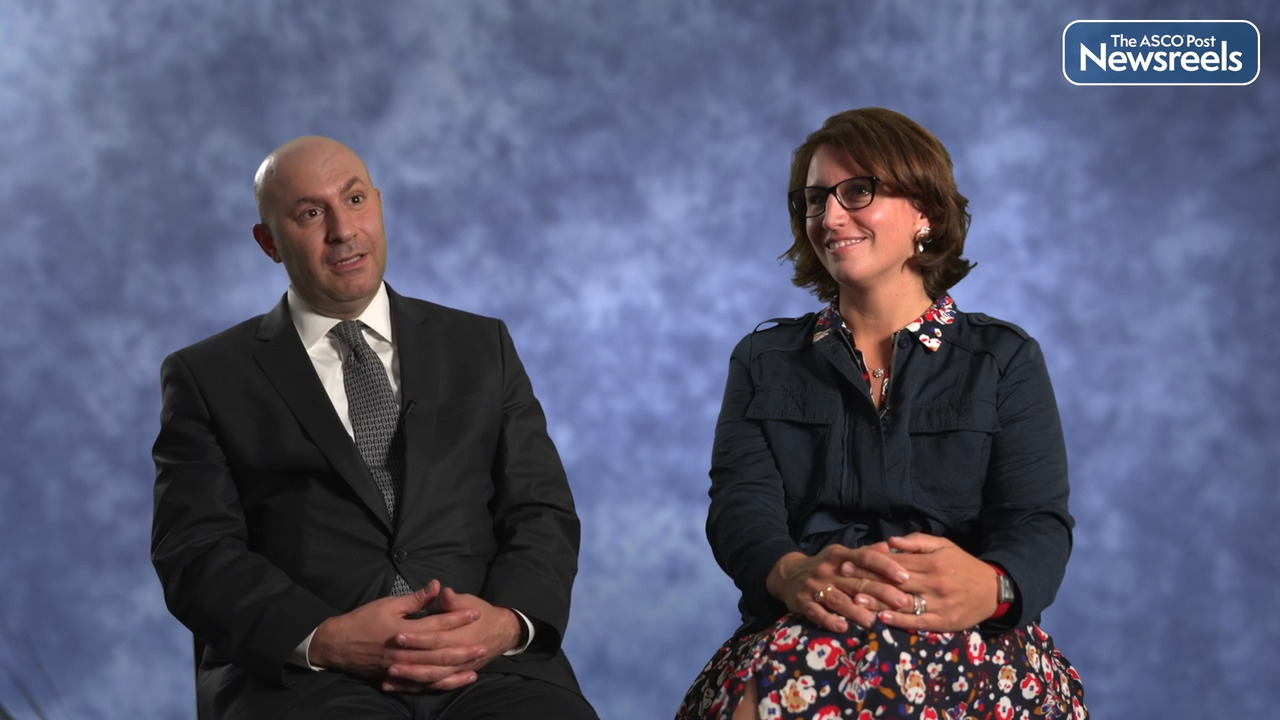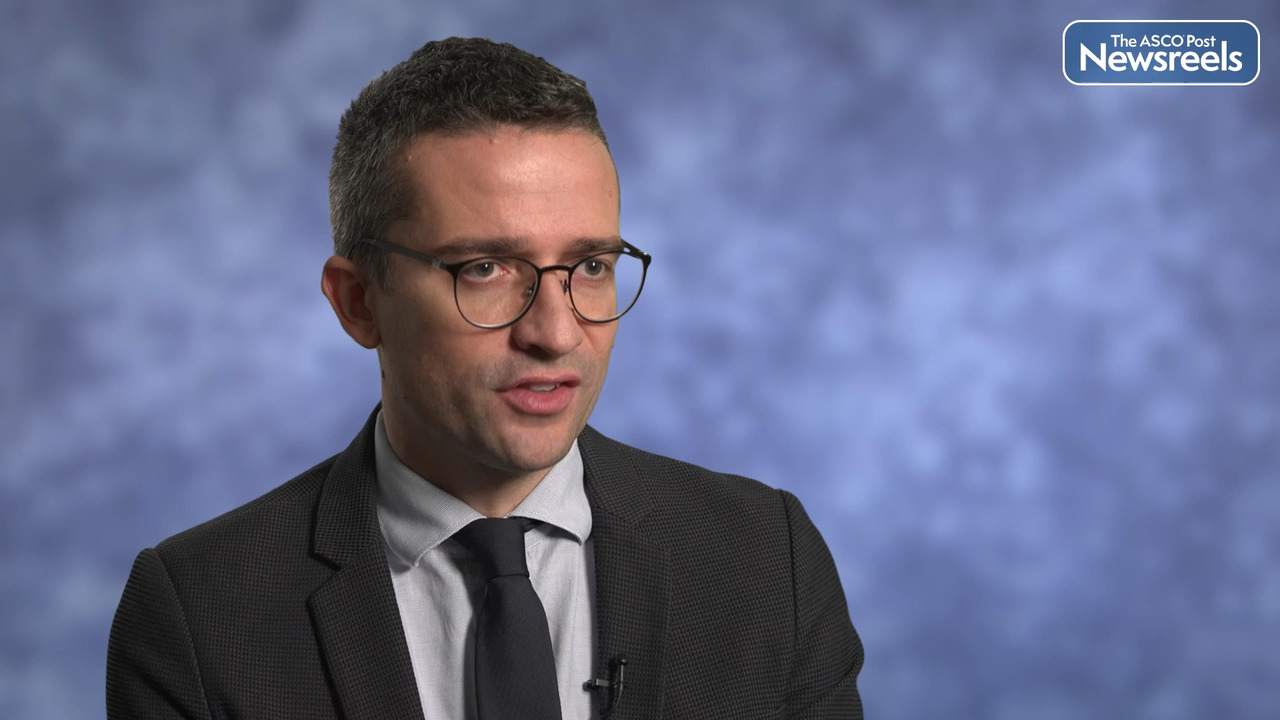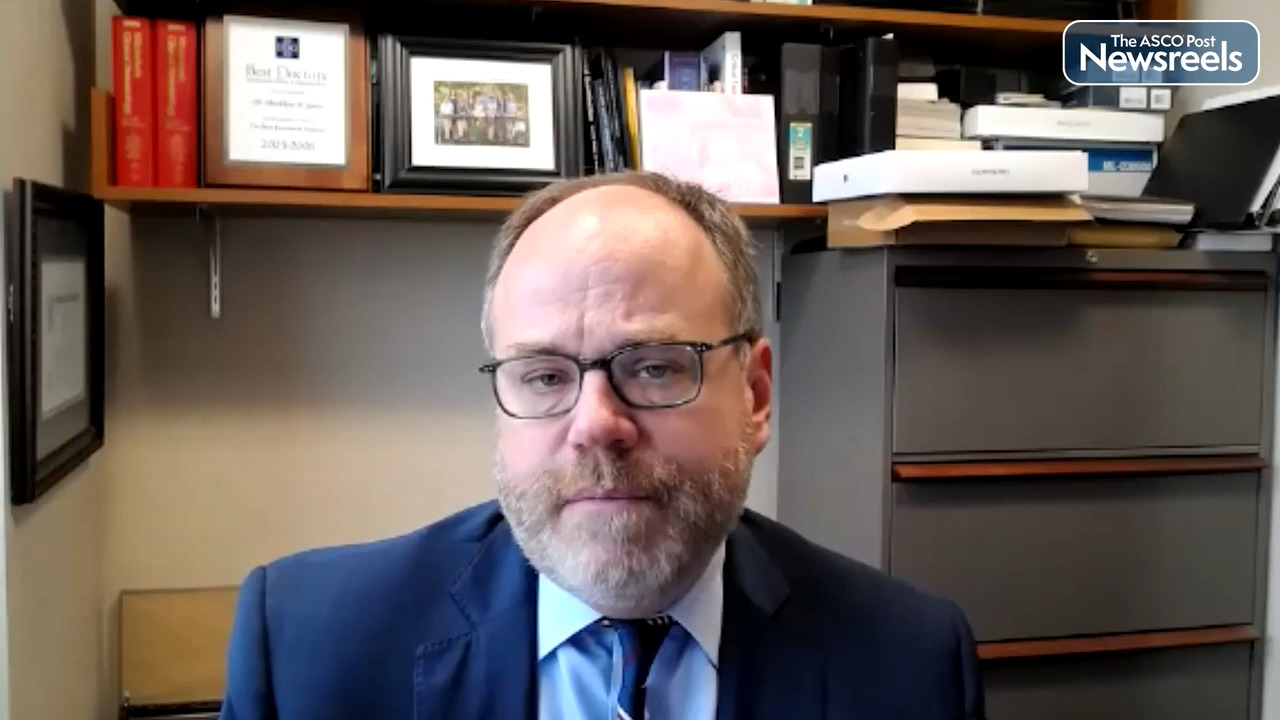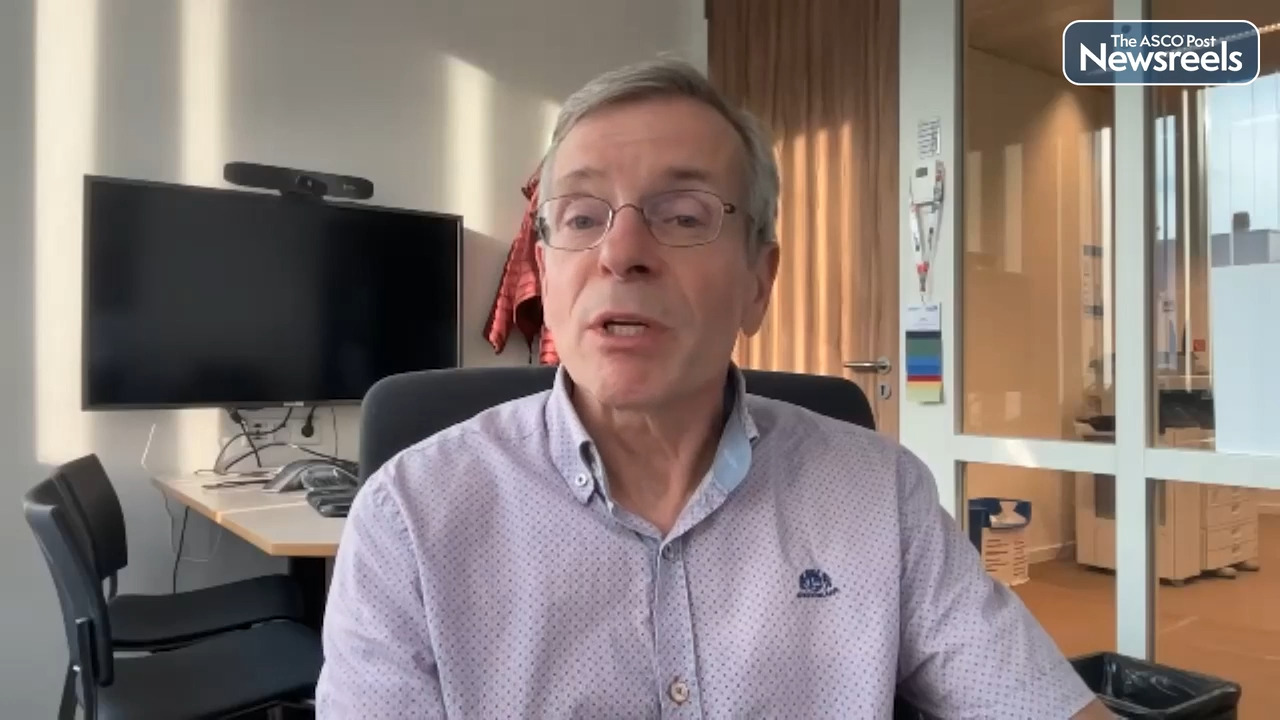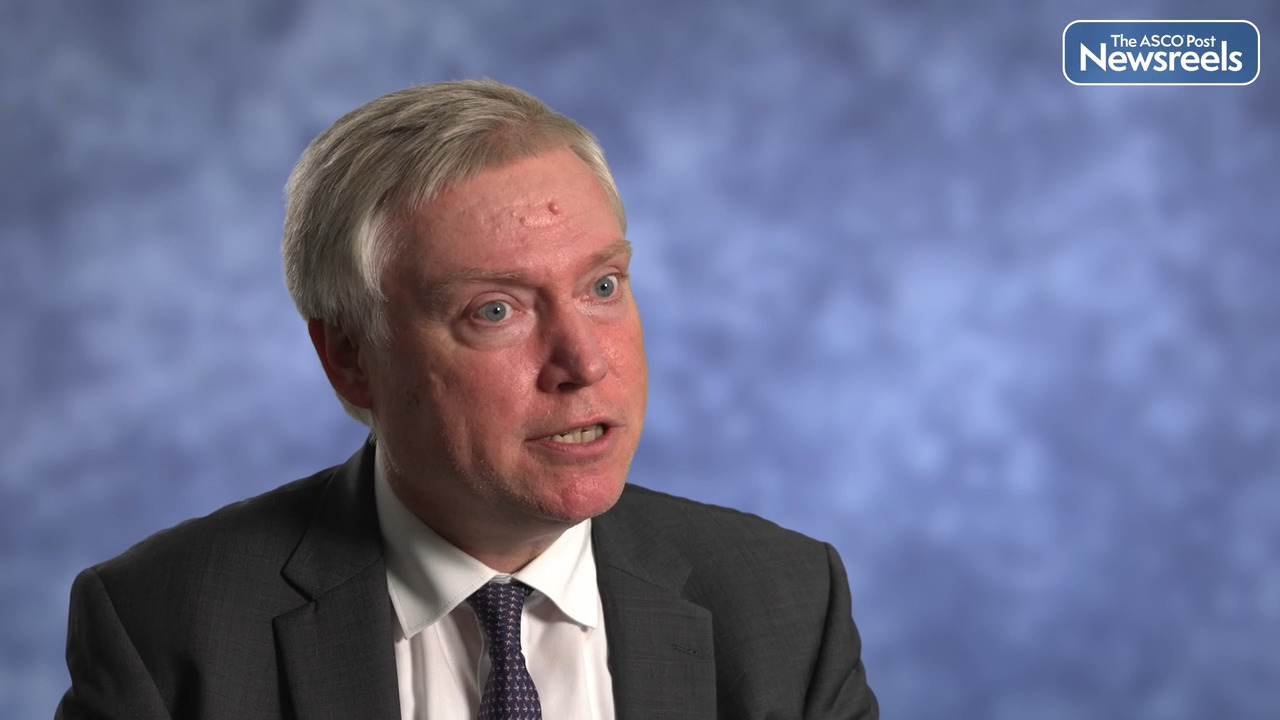Bernd Kasper, MD, PhD, on Desmoid Tumors: Results on Nirogacestat vs Placebo
ESMO Congress 2022
Bernd Kasper, MD, PhD, of Germany’s Mannheim Cancer Center, discusses phase III data from the DeFi trial, the largest study conducted to date for patients with desmoid tumors. The trial showed that the gamma secretase inhibitor nirogacestat demonstrated improvements in all primary and secondary efficacy endpoints. Although considered benign because of their inability to metastasize, desmoid tumors can cause significant morbidity and, occasionally, mortality in patients (Abstract LBA2).
Transcript
Disclaimer: This video transcript has not been proofread or edited and may contain errors.
It's my pleasure to speak about DeFi phase III trial of nirogacestat in progressing desmoid tumor patients and I had the pleasure to present that trial yesterday at ESMO 2022 in the presidential session.
When talking about desmoid tumors, we are actually talking about a rare disease. They are locally aggressive and invasive soft tissue tumors that are somehow difficult to manage due to their variable presentations, the unpredictable clinical cause, and the lack of currently approved therapies. There is indeed a clear rationale for the use of gamma secretase inhibitors in this disease as desmoid tumors express [inaudible 00:00:47], which can be blocked by gamma secretase inhibitors.
So nirogacestat is an investigational oral and selective small molecule gamma secretase inhibitor that already showed activity in phase I and II trials in desmoid tumors with a manageable safety profile. The phase III trial is a large global randomized double blind placebo-controlled trial, looking at safety, efficacy and tolerability of nirogacestat in comparison to placebo in resist progressing desmoid tumors.
We actually randomized 142 patients in 37 sites all over the world and primary endpoint was progression-free survival and secondary endpoints included overall response rate, and a couple of different patient-reported outcome measures.
So the results are as follows. The primary endpoint was met with improved progression-free survival, demonstrating a statistically significant 71% reduction in the risk of disease progression. And the confirmed objective response rate was 41% with nirogacestat as compared to 8% in the placebo arm. Again, highly statistically significant, including 7% complete responses with nirogacestat. The median time to response was 5.6 months with nirogacestat compared to 11 month in the placebo arm.
In terms of safety, actually nirogacestat was well tolerated. 95% of all treatment emergent adverse events were grade I or II. The most frequent side effect with nirogacestat were diarrhea, rash, hyperphosphatemia and fatigue. And those reductions were necessary in about 40% of patients and were primarily due to diarrhea, rash, and stomatitis.
In summary, DeFi represents the largest and most rigorous randomized controlled trial to-date in desmoid tumor. It actually definitely showed rapid, sustained and statistically significant improvements in all primary and secondary endpoints. It had a manageable safety profile with 95% of all the treatment emergent adverse events being grade I or II, and nirogacestat does have the potential to become the standard of care in desmoid tumors requiring systemic treatment.
There are definitely a couple of open questions still from that trial. One question might be the lengths of treatment duration so there could be something like a discontinuation trial. But what we'd learned from that trial already that nirogacestat is absolutely feasible for long-term treatment in this patient population and we will investigate, of course, a lot of other questions as well.
Related Videos
The ASCO Post Staff
Toni K. Choueiri, MD, of the Dana-Farber Cancer Institute, and Laurence Albiges, MD, PhD, of France’s Gustave Roussy Cancer Centre, discuss phase III findings showing that cabozantinib in combination with nivolumab and ipilimumab reduced the risk of disease progression or death compared with the combination of nivolumab plus ipilimumab in patients with previously untreated advanced renal cell carcinoma of IMDC (the International Metastatic RCC Database Consortium) intermediate or poor risk. However, the combination of cabozantinib, nivolumab, and ipilimumab vs nivolumab plus ipilimumab did not demonstrate an overall survival benefit to patients (Abstract LBA8).
The ASCO Post Staff
Matteo Lambertini, MD, PhD, of the University of Genova and Policlinico San Martino Hospital, talks about why oncofertility counseling should now be considered mandatory in the care of young women with breast cancer. Among the treatments he recommends offering are oocyte/embryo cryopreservation (or ovarian tissue cryopreservation in those not eligible for gamete cryopreservation); ovarian suppression with gonadotropin-releasing hormone agonist during chemotherapy; and long-term follow-up to improve the management of gynecology-related issues faced by these women.
The ASCO Post Staff
Matthew P. Goetz, MD, of Mayo Clinic, discusses recent data from the MONARCH 3 trial of patients with advanced hormone receptor–positive, HER2-negative breast cancer. The study, a second interim analysis, showed that longer overall survival was observed in both the intention-to-treat group as well as in the subgroup with visceral disease. However, neither met the threshold for statistical significance, and further analyses are planned when more data can be reported. (Abstract LBA15).
The ASCO Post Staff
John B.A.G. Haanen, MD, PhD, of The Netherlands Cancer Institute, discusses recent phase III findings, which show that tumor-infiltrating lymphocytes (TILs) improve progression-free survival compared with ipilimumab by 50% in patients with advanced melanoma after not responding to anti–PD-1 treatment. Around 50% of TIL-treated patients had a response, and 20% had a complete response (Abstract LBA3).
The ASCO Post Staff
Martin Reck, MD, PhD, of Germany’s Lung Clinic Grosshansdorf, details two trials that included patients with advanced non–small cell lung cancer: 3-year survival outcomes in the EMPOWER-Lung 1 study of continued cemiplimab-rwlc beyond disease progression with the addition of chemotherapy, and phase III results from the IFCT-1701 trial of nivolumab plus ipilimumab 6-month treatment vs treatment continuation (LBA54 and Abstract 972O).
